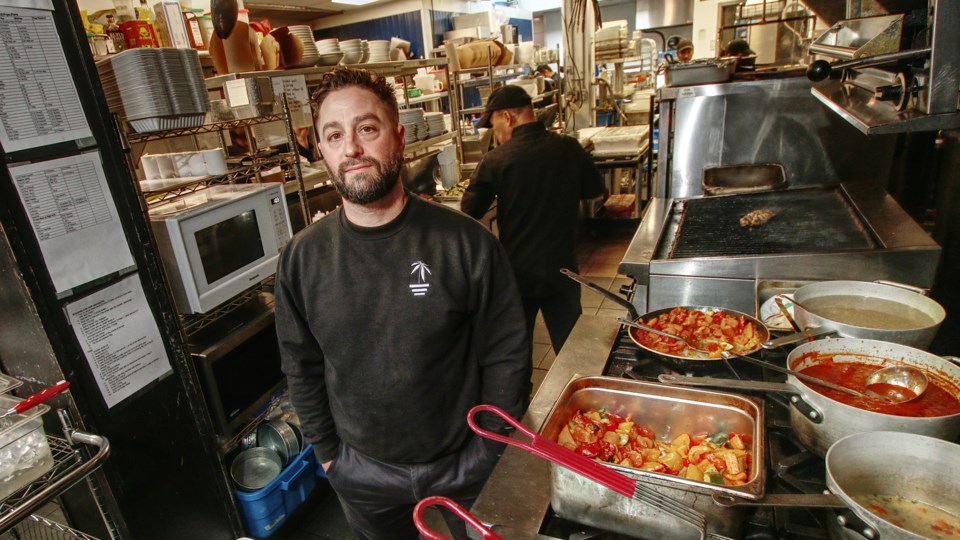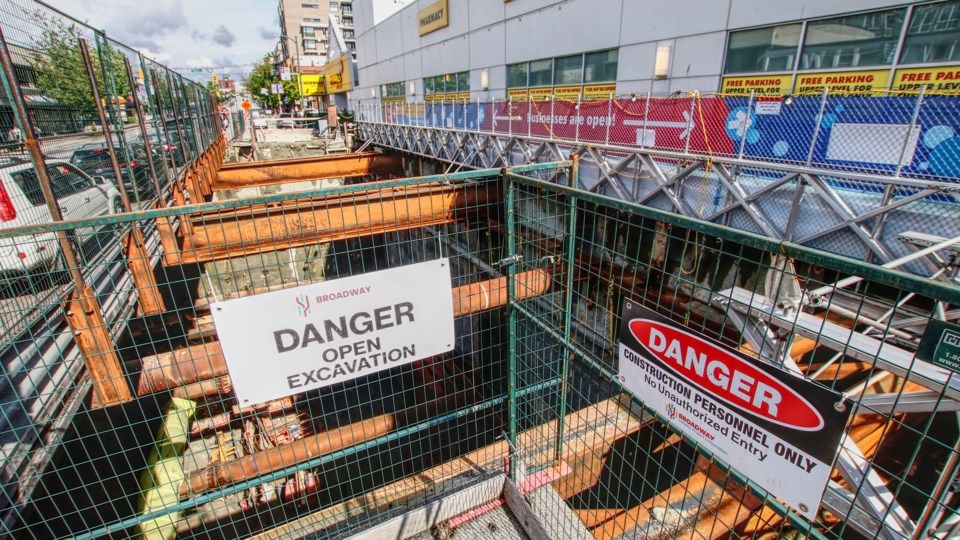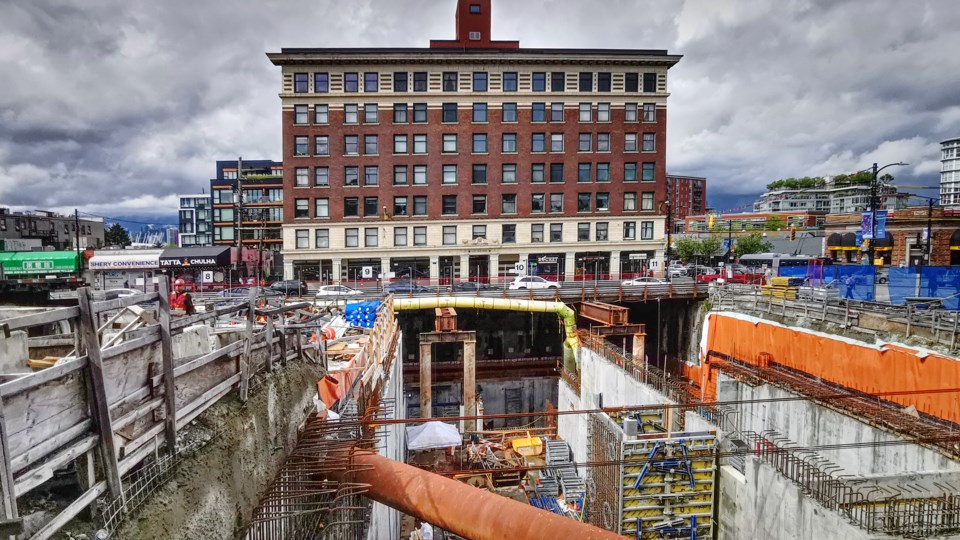When Iani Makris last year leased restaurant space on West Broadway near Yukon Street for his The Greek by Anatoli restaurant chain, he had added leverage in lease negotiations with his potential landlord.
Workers were loudly constructing the Broadway Subway outside his 382 West Broadway location, and disruptive fencing and temporary sidewalk closures meant the restaurant had scarce visibility and little foot traffic outside.
The sidewalk is now open but fencing remains, as does the construction noise. Worse is that the provincial government recently announced that the $2.8 billion subway project will not be complete until fall 2027. When construction began in 2021, the plan was to complete the line by 2025. In 2022, the completion date was pushed back to 2026.
That additional one-year delay will be a blow for many businesses.
“The price for the lease should probably be the same, I would imagine,” Makris told BIV. “We just got to negotiate a better timeline—rather than signing a five-year lease, we signed a two-year lease.”

He largely uses the restaurant for its 1,200-square-foot kitchen, where staff prepare meals for all three of Makris’ Vancouver restaurants, located on Broadway and in Gastown and Yaletown. The kitchen at his Gastown restaurant is only 200 square feet, he said.
What makes the Broadway restaurant viable is not its 50 seats for in-person dining, but that the kitchen feeds the chain’s delivery business. Makris estimated that delivery orders comprise about 60 per cent of overall sales at his restaurants.
His is a rare new business in the Broadway corridor.
. Even tax breaks would be appreciated, they say.
Nothing has arrived.
Transportation and Infrastructure Minister Rob Fleming declined BIV’s request for an interview. BIV’s request to speak with someone from the Broadway Subway construction project team was also declined.
Subway construction leaves businesses in its wake
Many businesses have ceased operations along the Broadway Subway route since construction began, including the Simit Bakery in the past few weeks.
A .
Another business that closed was Heritage Asian Eatery, which formerly operated at Makris’ location.
Owner Paul Zhang told BIV he closed his restaurant in 2022 because it was losing too much money.
He had to continue paying lease payments deep into 2023, however, and he estimates that business disruption on Broadway cost him between $900,000 and $1 million.
Close to Maple Street, at 1978 West Broadway, is Greens Market, where owner Sentheepan Senthivel (also known as T) told BIV that his business losses due to construction top $1.3 million and will likely be $1.5 million by year’s end.
His store generated $7.7 million in 2020. Revenue dropped to $6.8 million in 2021 and $5.6 million in 2022. Sales stayed at that level last year, he said.
“Hearing that the subway will take one more year kind of hurts because we thought we would be out of it [by 2026,]” he said.
Other business owners, such as former when their leases expired.
Two doors west from Makris’ restaurant, at the Your Dollar For More store, owner Mei Gour told BIV that the construction noise, fencing and sidewalk closure hurt her business on the southeast corner of West Broadway and Yukon Street, and that things have not improved in the past year and a half, even though the sidewalk is now open in the block between Yukon and Alberta streets.
“A lot of people thought we got compensation but we haven’t,” Gour said. “There hasn’t even been any follow up [from government.]”

Mt. Pleasant Business Improvement Area executive director Neil Wyles stressed that it should be up to the B.C. government to provide compensation and that the buck stops with either Fleming or Premier David Eby.
“It needs to come from the province,” he said. “It needs to be the Ministry of Transportation: Rob Fleming.”
The subway’s builder is Transportation Investment Corp. (TI Corp.), which is tasked with delivering $13 billion worth of infrastructure on behalf of B.C.’s Ministry of Transportation and Infrastructure. Wyles described it as an “arms-length division of the government.”
The B.C. government created TI Corp. through its Transportation Investment Act.
The organization is a subsidiary of the BC Transportation Finance Authority and is governed by a board of directors.
Wyles said that he understands the complexity of providing compensation.
For example, though giving a small bakery a $50,000 payout would be a windfall for that business, same amount would have much less impact for a business like the Loblaw Cos. Ltd.-owned (TSX:L) No Frills grocery store at the southwest corner of West Broadway and Alberta Street, he explained.
Governments have shown, however, that they can move quickly to provide supports for businesses in extraordinary times, such as during the COVID-19 pandemic.
One B.C. government program in April 2020—one month after the pandemic descended—reduced the school property tax rate for commercial properties to achieve an average 25-per-cent reduction in the total property tax bill for most businesses, providing $700 million in relief.
“The government has shown us that they can be nimble and quick when needed,” Wyles said.
The Ministry of Transportation and Infrastructure has yet to be persuaded.
“Consistent with all ministry projects that improve B.C.’s transportation infrastructure, the province does not provide compensation for disruptions arising from construction,” it told BIV in an emailed statement.
It cited the pandemic, a five-week concrete strike in 2022 and extra precautions taken when boring tunnels adjacent to existing infrastructure, for the delays.





